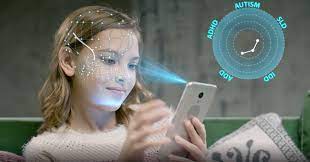
Revolutionizing Neurological Disorder Diagnosis: An Inside Look at BlinkLab
January 19, 2024 - Reading time: 3 minutes
In the realm of neurobehavioral research and assessment, BlinkLab stands out as a beacon of innovation and efficiency. Founded by Dr. Henk-Jan Boele and Dr. Anton Uvarov at Princeton University, BlinkLab specializes in the early detection and diagnosis of neurological disorders using advanced technology.
This groundbreaking tool has been making waves in the medical community, particularly with its recent strategic appointments and advancements.
Leadership and Strategic Growth
Jane Morgan, a seasoned professional in strategic communications, has joined BlinkLab as a Non-Executive Director. Brian Leedman, with his extensive background in finance, technology, and healthcare, takes on the role of Chairman of the Board. These appointments come at a critical time as BlinkLab is preparing for its listing on the Australian Securities Exchange (ASX), with Westar Capital as the lead manager for the IPO.
BlinkLab's Pioneering Platform
What sets BlinkLab apart is its innovative smartphone-based platform for neurobehavioral testing, offering numerous advantages over traditional methods:
- Remote and Rapid Testing: BlinkLab's platform allows for assessments to be conducted remotely, making it feasible for researchers and participants to interact without being in the same location.
- Accessibility and Scalability: Leveraging smartphones, BlinkLab's digital solutions offer scientifically validated functional tests independent of local clinical resources, increasing accessibility.
- Convenience and Comfort: Designed for use at home or similar environments, BlinkLab's platform eliminates the need for cumbersome instruments and lab-based testing.
- Comprehensive Neurobehavioral Evaluations: The platform facilitates a variety of evaluations, enhancing the scope and depth of central nervous system function assessment.
Transforming Diagnosis and Treatment
Traditionally, diagnosing neurological disorders is a lengthy process, often too late for optimal therapeutic interventions. BlinkLab disrupts this norm by offering quick, 15-minute smartphone-based neurometric tests, potentially lowering the diagnostic age to as early as 18 months. This not only aids in effective treatment during crucial developmental stages but also aims to reduce healthcare costs.
BlinkLab's experimental setup includes a smartphone application developed in Swift for iOS devices. Its cloud-based analysis portal, built with Symfony and PostgreSQL, supports iterative development, focusing on precision, non-invasiveness, and scientific compliance. The platform allows researchers to design protocols for various tests, using smartphone stimulus delivery and facial response measurement.
Study Design and Data Analysis
Participants in BlinkLab studies are exposed to different stimuli, including white dots and white noise pulses, for various neurobehavioral evaluations like eyeblink conditioning, prepulse inhibition, and startle habituation. The app monitors environmental factors and employs facial landmark detection algorithms. Comprehensive data analysis is performed using multilevel linear mixed-effects models, ensuring robust and reliable results.
BlinkLab's approach is a significant leap forward in the field of neurobehavioral research and diagnosis. Its integration of advanced technology with ease of use, accessibility, and scientific rigor positions it as a leader in neurological disorder diagnosis. The combination of strategic leadership and innovative technology promises to propel BlinkLab towards transforming the landscape of neurological disorder treatment and research. As BlinkLab progresses towards its ASX listing and further advancements, it stands as a testament to the power of technology in revolutionizing healthcare and improving lives.
About
You can read reviews online, check with the Better Business Bureau, or ask for references from people you trust. When you've narrowed down your options, contact the centre to ask about their process and fees. Once you've found a qualified assessment centre, they will be able to help you determine if your child has ADHD and develop a treatment plan.